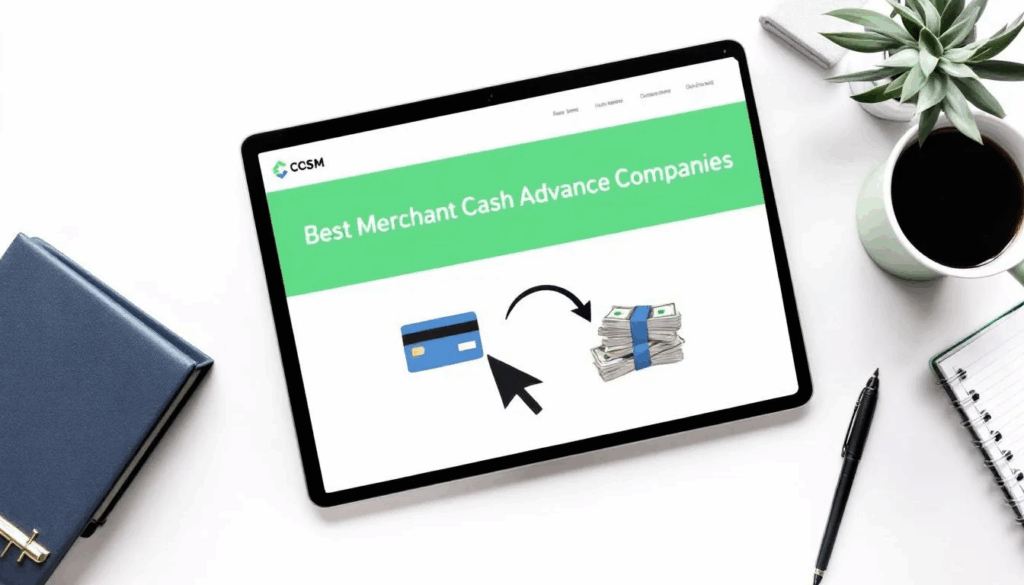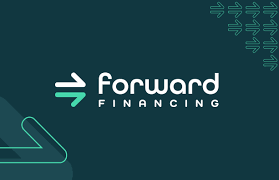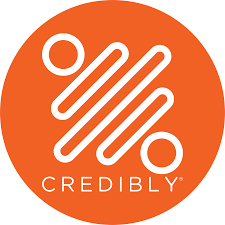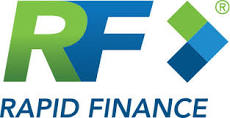What is a Merchant Cash Advance?
A merchant cash advance is a business sales-based financing product where a small business receives an advance of funds that it repays, plus interest, with a percentage of its future credit card sales. Merchant cash advances are sometimes referred to as “Credit Card Factoring” or “Credit Card Processing Loan.” The term is also often abbreviated as MCA.
MCAs often carry some of the lowest credit approval requirements of any small business financing option. Merchant cash advance companies typically work with borrowers with bad credit and younger businesses. MCAs enable businesses to secure funding without requiring collateral.
Small businesses also benefit from fast funding with a business cash advance. Most MCA companies can send the advance within 1-3 business days after approval. MCA repayment is tied to your revenue, allowing for flexible payments.
The main caveat of approval for an MCA is having the card sales to support repayment. A merchant cash advance offers the following:
- Advance amounts: $5k – $5 million
- Factor rates: Starting at 1% to 6% per month
- Term: 3-24 months
- Speed: 1-2 Business days
How do Merchant Cash Advances work?
Receiving a business cash advance typically involves working with a financial institution, often referred to as a merchant cash advance company. The MCA company issues the advance, sets your rates and fees, and collects payment from your card sales when you batch out.
While you can typically get approved with bad credit, your credit profile does impact your costs. Lower-credit borrowers usually have higher rates and fees, as well as shorter repayment terms.
Let’s look at the components of a merchant cash advance.
Advance Amount
The advance amount you receive depends on your average monthly credit card transactions. Your credit and debit card sales are the primary determining factor for approval.
This is why it’s called an advance – the amount you receive is an advance of projected future card sales. Most MCA companies base the amount on a monthly average of sales, but some may use weekly or quarterly sales averages instead.
Factor Rate
MCA companies use a factor rate instead of an interest rate. Factor rates can be equivalent to anywhere from a 40% to 150% APR.
The factor rate is a fixed percentage you repay. Factor rates range from 1.09 to 1.50. Multiply the factor rate by the advance amount to determine your interest.
For example, if you borrowed $100,000 at a factor rate of 1.2, the formula would be:
$100,000 x 1.2 = $120,000.
You’d pay $20,000 in interest for borrowing $100,000.
Holdback Rate
The holdback rate is the percentage of your future sales that get withheld and sent to the MCA company for repayment. Holdback rates typically range from 8% to 15%.
Most MCAs have daily payments, but some companies offer weekly repayment. Because repayment is tied to your sales, the amount you pay fluctuates in proportion to your sales.
Terms
MCAs are short-term financing, which is typically repaid within 18 months. Some short-term financing options last up to 24 months. Payments for merchant cash advances generally are deducted automatically from daily or weekly sales.
What are the best Merchant Cash Advance Companies?
MCAs are an expensive way to borrow money, and minimizing your costs requires working with a reputable merchant advance company. Unfortunately, some MCA providers use predatory lending practices that could cost your company.
Best business practices suggest conducting your own due diligence when considering this alternative form of business funding. Ensure that any MCA agreement aligns with your business needs.
Here is our list of the top merchant advance companies.
Forward Financing
Forward Financing is a fintech company that helps small businesses obtain working capital. Its MCA offers amounts between $5,000 and $300,000 with terms ranging from 3 to 12 months.
Borrowers can get approved and funded within 24-48 hours. You’ll need a credit score of 500, one year in business, and monthly revenue of $10,000 to qualify. Forward Financing is based in Massachusetts.
Credibly
Credibly offers merchant cash advances with a maximum funding amount of up to $600,000. The online lender provides a suite of business financing products.
The lender’s factor rates fall anywhere from 1.09 to 1.41. The company also charges a 2.5% origination fee and a $50/month administration fee.
Small business owners need a credit score of at least 500, to be in business for at least six months, and to have a monthly revenue of at least $15,000 to qualify. Credibly can approve applications in as little as 4 hours and wire the advance within 24-48 hours. Credibly is based in Michigan.
Rapid Finance
Rapid Finance is an online lender specializing in lightning-fast funding. The company offers MCA with amounts ranging from $ 5,000 to $500,000.
Rapid Finance MCA factor rates start at 1.22. You need a credit score of 550, three months in business, and $5k in monthly revenue to qualify.
The company offers a quick and easy application process with minimal documentation requirements. If approved, you can get your funds in as little as 24 hours. Rapid Finance’s headquarters are in Maryland.
CAN Capital
Launched in 1998, CAN Capital is one of the originators of MCAs. Small business owners can receive an advance of between $ 2,500 and $250,000.
Instead of an origination fee, CAN Capital charges a $595 administrative fee for its MCA product. The company offers a simple online application.
CAN Capital does not set a minimum personal credit score for MCAs. You will need to have been in business for six months and have $ 150,000 in annual revenue. CAN Capital is based in Georgia.
Reliant Funding
Reliant Funding is a San Diego-based alternative lender, offering a primary financing product, a business cash advance. Advance amounts range from $5k-$400k.
Sometimes, it’s possible to get same-day funding, but it usually takes 1-3 business days. Reliant Funding’s factor rates range from 1.10 to 1.40.
Its MCA product also includes an origination fee, but the company doesn’t disclose the fee range. To qualify, you must have been in business for at least six months, have an annual revenue of $60,000, and a minimum credit score of 525. Reliant Funding’s headquarters are in California.
Platform-Specific MCAs
Some payment processors and eCommerce platforms offer business financing products to merchants who use their services. You may be eligible for exclusive perks and discounts if you process payments using one of the following methods.
PayPal Working Capital is a financing product that operates like a merchant cash advance. Consider this product if your business processes payments using PayPal.
Shopify is one of the world’s leading e-commerce platforms. Shopify Capital is an invite-only financing product for qualified customers.
Using Square payment processors might make you eligible for Square Business Loans, which operate like a business cash advance. Like Shopify, this program is invite-only, so the company will notify you when you’re eligible.
Stripe is another one of the big three payment processors, along with PayPal and Square. It was the last of the three to offer business financing to its customers. The Stripe Capital application is by invitation only, so you’ll be notified if and when you’re eligible.
eCommerce platforms also offer merchant funding programs for their sellers. Amazon Lending is an invite-only merchant funding program for Amazon sellers. eBay Seller Capital also provides merchant funders to sellers on its platform.
How do I qualify for a Merchant Cash Advance?
One of the primary benefits of an MCA is that it has the easiest qualifications of any business lending product. Each lender sets different minimums, but your average credit and debit card sales are the most crucial factor. Many merchant cash advance providers require businesses to have been in operation for at least six months before they can be considered for an application.
A business must typically accept credit card payments to qualify for a merchant cash advance. However, some modern merchant cash advance options take repayment from all sources of revenue, placing less of an emphasis on credit card sales.
Most approved businesses we work with here at UCS meet the following minimums:
- Annual revenue: 120k+
- Credit score: 550+
- Time in business: 4+ months
How to apply for a Merchant Cash Advance:
You can borrow up to $1 million, with terms of up to 24 months. Here’s how to apply:
Step 1: Consider Your Needs
Take time to ensure this is the right product for your needs and circumstances. Will you be able to utilize the capital to achieve your goals? Will the repayment structure do more good than harm to your operating capital? Do you know exactly how much funding to request? Answering these questions ahead of time will make the rest of this process much easier.
Step 2: Gather Your Documents
The application requires the following documents and information:
- Driver’s license
- Voided business check from your business checking account.
- Business bank statements from the past three months
- Credit card processing statements from the past three months
Step 3: Complete the Application
You can begin the application process by calling us or filling out our one-page online application. Enter the information from the previous section along with your desired funding amount.
Step 4: Speak to a Representative
After applying, a representative will contact you to explain the repayment structure, rates, and terms of your available options. This will ensure that there are no surprises or hidden fees during the repayment period.
Step 5: Receive Approval
The process generally takes a few business days. The cash should appear in your checking account in 1-2 business days after approval.
What are the advantages of a Merchant Cash Advance?
MCAs are designed to help small business owners who may not have sufficient credit, a long history in business, or consistent cash flow, making it difficult for them to qualify for traditional business loans. Merchant cash advance companies often consider the overall health of a business, not just credit scores, when evaluating applications. Few business financing products are easier to qualify for than an MCA.
The primary benefit of business cash advances is the speed of funding. Most MCA companies offer convenient online applications with minimal documentation requirements. You can typically complete an application in minutes and receive approval on the same day or within 24 hours.
After approval, business cash advance lenders can wire transfer the advance to your business bank account in 24-48 hours. All told, you can apply, get approved, and receive your money in 1-3 business days.
Instead of having to pay the same amount every month like a traditional loan, your repayment fluctuates with your card sales. Slow months result in a lower total payment.
The repayment structure is particularly beneficial for seasonal businesses or companies that experience occasional downturns. Theoretically, you could spend the funds to cover operating expenses during the offseason and repay the MCA as revenue increases during peak season.
What are the disadvantages of a Merchant Cash Advance?
The lowered qualifications, quick application process, and fast funding times come at a cost. Business cash advances carry some of the highest costs of any business lending product.
You’re also more likely to get a higher factor rate and shorter repayment terms with a lower credit score. The combination of high costs and short repayment terms results in frequent, high payments that can significantly strain your operating capital.
With a factor rate, you get a flat interest applied to the loan regardless of when you pay it off. Unlike business loans with amortization schedules, you won’t save interest by paying the debt early.
MCA Pros and Cons
Here’s a summary of the benefits and drawbacks of business cash advances.
Pros:
- Quick & easy application process with fast approval times.
- Low credit scores are accepted.
- You can get approved with less than a year in business.
- Fast funding times, as soon as 1-3 business days.
- No fixed monthly payments – fluctuates with your card sales.
Cons:
- Higher rates & fees than most small business loans.
- A shorter repayment term & high payments could impact cash flow.
- You may have to change your merchant services provider.
Frequently Asked Questions
Here are the most common questions about merchant cash advance companies.
Is a Merchant Cash Advance worth it?
Every business owner should carefully weigh the costs of an MCA against its intended benefits. In certain situations, the increased expense of a business cash advance may be worthwhile. Most businesses that qualify for merchant cash advances need to process credit card payments.
If you expect an increase in card sales, you could rapidly repay the advance with a lower impact on your operating capital. For example, let’s say you run a seasonal business that requires purchasing large quantities of inventory to prepare for the busy season.
You use the MCA funds to stock up, and once your card sales increase, you’re repaying the advance while maintaining a healthy cash flow. In this case, the financing costs associated with acquiring the necessary inventory are justified.
In addition, an MCA is not technically a “loan” and doesn’t show up as a “liability” or “debt” on your balance sheet. Sometimes, having too many liabilities and accumulating additional business debt can negatively impact your credit, making it more challenging to obtain credit from vendors.
Can I get a Merchant Cash Advance with bad credit?
Yes, one of the most significant advantages of MCAs is that you can typically qualify with a lower credit score. Some MCA companies don’t require a minimum credit score.
However, you should know that a lower credit score typically means a higher interest rate. In general, one way to think of MCAs and bad credit business loans is as a form of bridge financing.
You can use the MCA to obtain short-term funding while building or repairing your credit. With a higher credit score and a more established business history, you should be able to qualify for lower-cost financing.
Businesses must accept credit and debit card payments to qualify for a merchant cash advance. Both business and personal financial documentation may be required during the funding application process. Typically, three months of bank statements are required for the merchant cash advance application process. Some lenders may approve a merchant cash advance without requiring bank statements, but they may expect higher interest rates.
How long does it take to repay a Merchant Cash Advance?
Merchant cash advances are short-term financing options that are typically repaid within 3 to 18 months. However, your repayment depends on your card sales. The more card sales you make, the faster you repay the advance.
What are the risks of Merchant Cash Advances?
There is an ongoing concern that MCAs can lead to a cycle of debt due to aggressive collection practices and high costs. Recent legal actions have exposed predatory practices in the merchant cash advance industry.
MCA providers typically avoid regulations governing traditional loans by relying on the differences between MCAs and loans. MCA agreements lack the protection of usury laws because they are structured as purchases of future receivables rather than traditional loans.
States like New York and California are implementing regulations specifically targeting merchant cash advances due to rising concerns over predatory lending.
The New York Attorney General secured over $1 billion in judgment against Yellowstone Capital for misleading loans represented as merchant cash advances. Founded in 2009, Yellowstone Capital faced legal issues for providing predatory loans disguised as merchant cash advances. The judgment against Yellowstone Capital includes the cancellation of over $534 million in debts owed by small businesses under predatory terms.
What are my alternatives to Merchant Cash Advances?
Business cash advances are not suitable for every company or situation. For example, not every business processes a high volume of monthly credit card sales.
A revenue based business loan is similar to an MCA, except that the borrowing amount and repayment are derived from all revenue sources. The terms, rates, and qualifications are generally similar.
More established businesses with fair to good credit and consistent revenue can qualify for more advantageous financing options. Here are some other small business loans to consider:
- Business term loans: With a business term loan, you receive a lump sum of capital upfront and repay it over a set period with fixed or variable interest.
- Equipment Financing: Equipment financing allows you to purchase or lease equipment by using the equipment itself as collateral for the loan, which is typically repaid through fixed payments.
- SBA loans: SBA loans are government-backed business loans that offer competitive rates and long repayment terms to qualifying small businesses.
- Accounts receivable factoring: Accounts receivable factoring provides immediate working capital by selling your unpaid customer invoices to a third-party factoring company.
- Business lines of credit: A business line of credit gives you flexible access to funds up to a set credit limit, letting you borrow only what you need and repay as you go.
Merchant Cash Advance Companies – Final Thoughts
An MCA can help your business with working capital, but it’s essential to understand all the associated costs. MCAs carry higher costs than most loans.
Businesses that aren’t careful could get trapped in a cycle of debt that’s difficult to escape. You should take every measure to minimize costs and plan for the expense.
One of the best ways to do this is to look for a merchant cash advance provider that is transparent with its costs and fees. It will be easier to budget for the repayment with accurate costs.
Contact us to learn more about merchant cash advance companies or to apply for a small business loan. Our loan executives can help you find the best financing product for your goals.


















